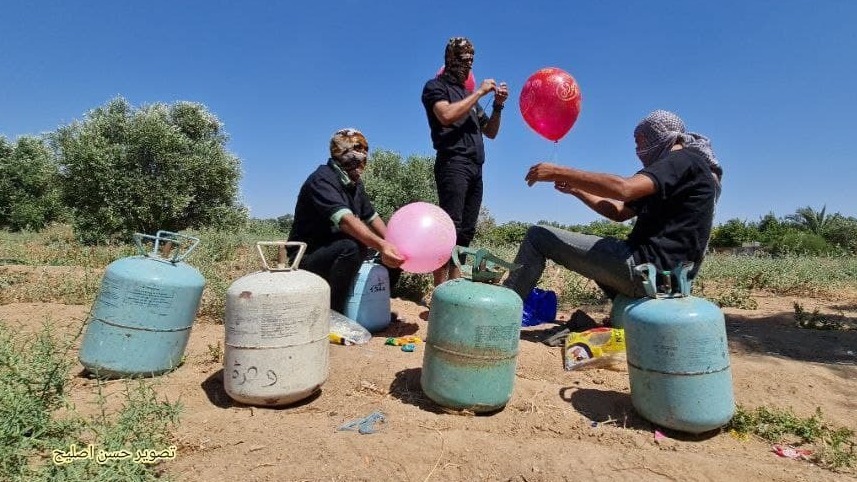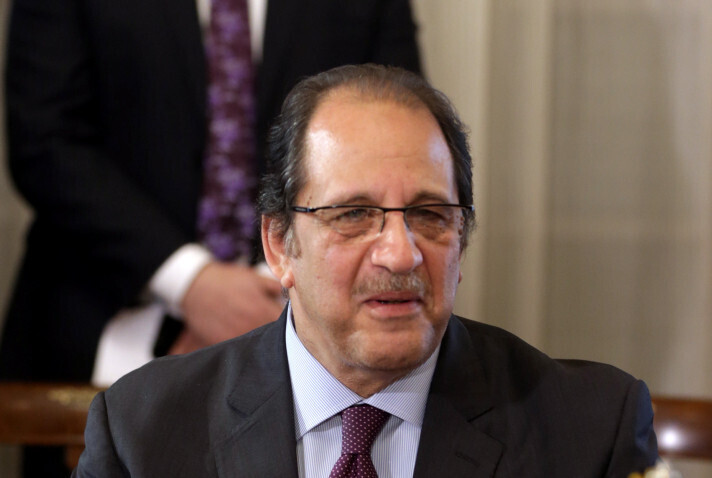It would be an understatement to say that Israel's lackluster response early Wednesday to Hamas launching incendiary balloons throughout the entire day before is not in line with its security officials and IDF commitments following the 11 days of fighting in the Gaza Strip last month.
Following the Egyptian-brokered ceasefire in late May, Defense Minister Benny Gantz and then-prime minister Benjamin Netanyahu went on television to tell Israel that "what was will be no more." In other words, the days of turning the other cheek to Hamas were over.
But actions like Wednesday's retaliatory airstrikes against what are essentially empty Hamas training facilities have long ceased from keeping Gaza's terror groups up at night.
7 View gallery
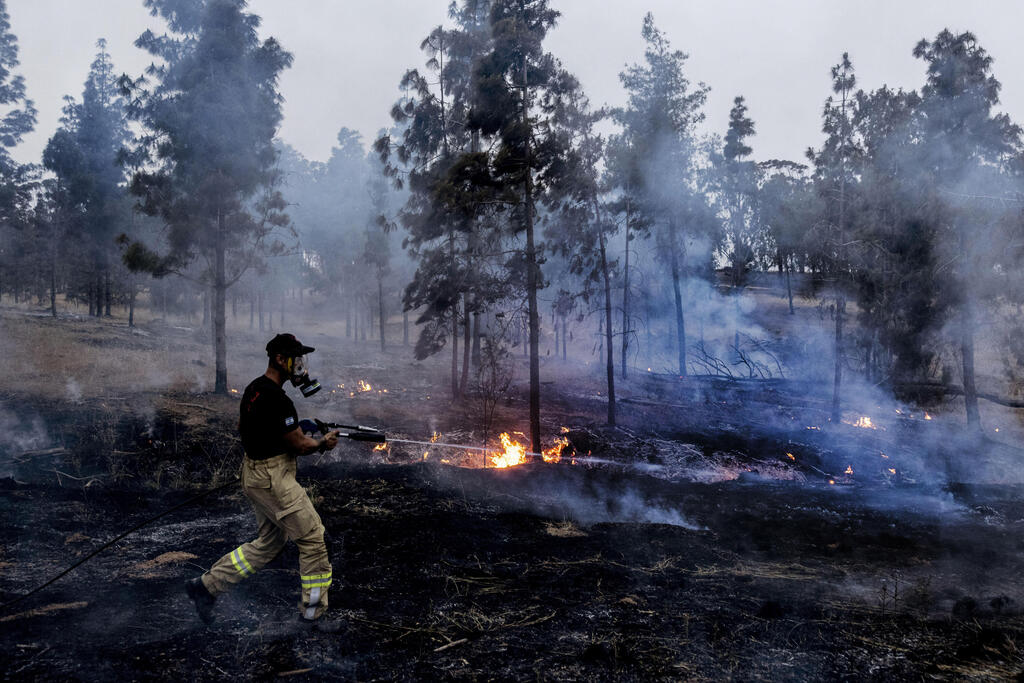

Firefighters fighting a blaze near the Gaza border fence started Tuesday by an incendiary balloon
(Photo: AFP)
Before the latest campaign, Israel's government and the IDF would show restraint against the launching of incendiary balloons and riots along the border fence, unfairly claiming that the damage caused by the airborne arson devices was rather minor and arguing that they and some Gazan juvenile delinquents making noise at night did not justify military attacks.
But this restraint was seen by Hamas as weakness. And in a place like the Middle East, the smallest sign of that can be a death blow to deterrence.
This is why Hamas and Palestinian Islamic Jihad (PIJ) dared to even pose an ultimatum to Israel about the tensions in Jerusalem last month that eventually led to the fighting.
Although Israel's response Wednesday to the balloons was rather quick in coming, its total impact was limited and simply not good enough.
The airstrike authorized by Gantz and Prime Minister Naftali Bennett was far from the deterrence that Israel's leaders boasted about after the fighting ended.
The IDF's lackluster retaliation is proof that Hamas' new equation of mutual deterrence is already in place. This equation means Israel's border communities will again pay a material and psychological price if the country does not cave into the Islamist group's future demands on Jerusalem.
Such an ultimatum led the government to change the route of the controversial nationalist flag march in the capital on Tuesday.
7 View gallery
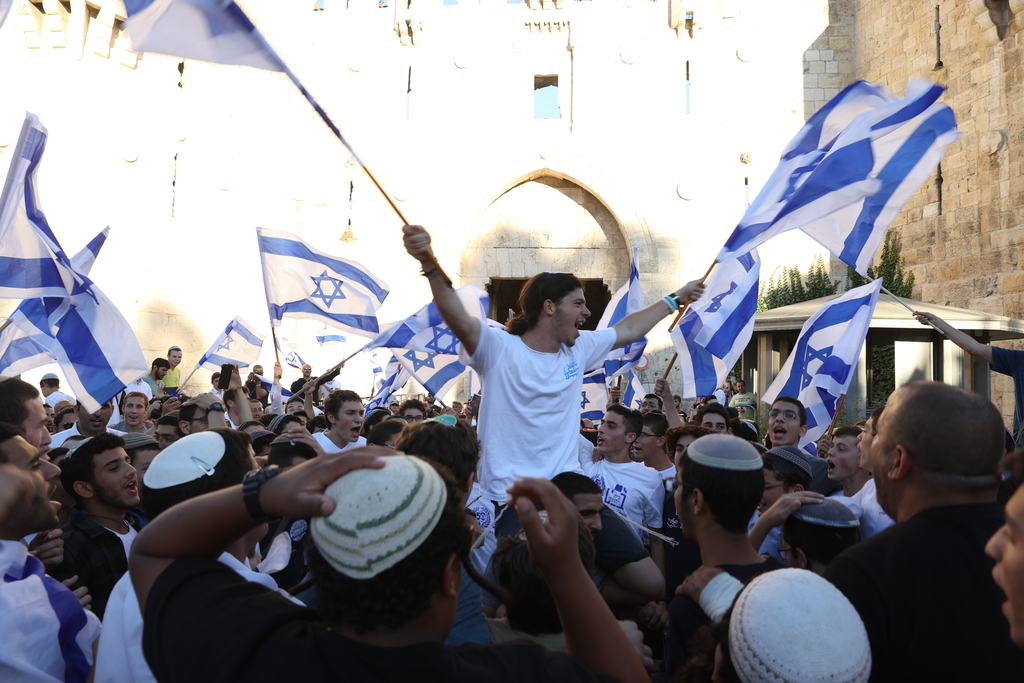

Far-right activists take part in the flag march in Jerusalem on Tuesday
(Photo: Amit Shabi)
New Public Security Minister Omer Barlev and Israel Police Commissioner Yaakov Shabtai should be commended for this decision, which prevented unnecessary clashes between Jewish radicals and Palestinian residents of East Jerusalem. But even so Hamas was quick to cash in on this reasonable change of plans, portraying it as another victory against Israel.
Hamas leader in Gaza Yahya Sinwar has again proven why his group's has recently grown in popularity on the Palestinian street.
This could have been done differently. Theoretically speaking, had IAF fighter jets been scrambled the moment the first incendiary balloon touched ground, with Israel delivering a very stern and public warning to Hamas, it is possible Sinwar would have got the message and called off his units.
7 View gallery
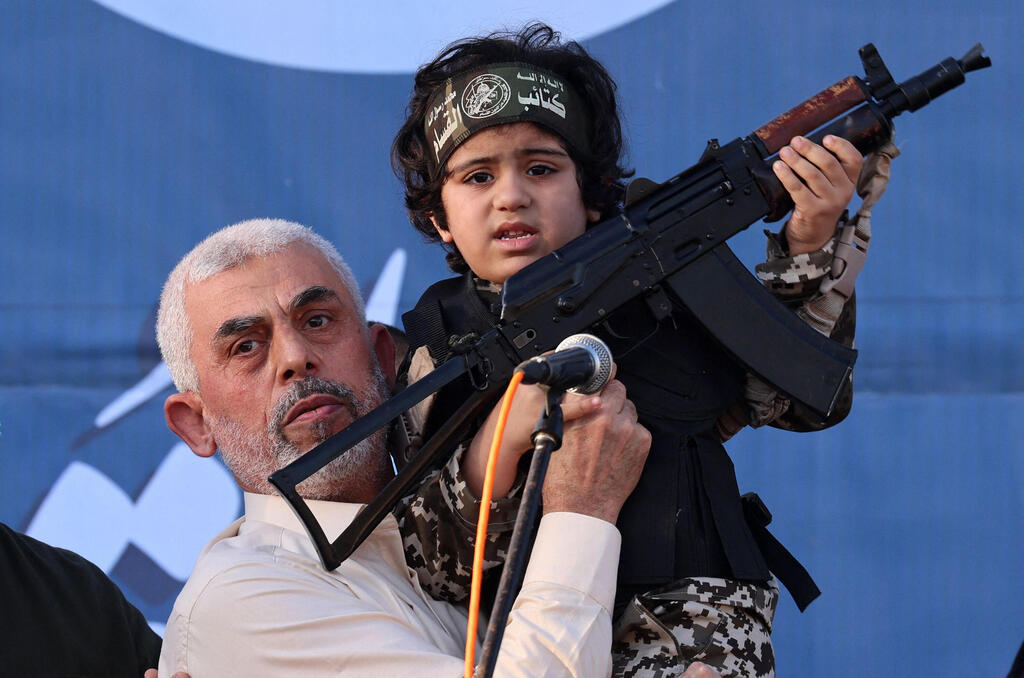

Yahya Sinwar holds the child of an Al-Qassam Brigades fighter killed in the recent fighting with Israel
(Photo: AFP)
If the Hamas leader in Gaza failed to understand the message, a single direct strike on a high-value Gaza target could have shown the terror groups that as far as Israel is concerned, the rules have changed.
Under the new rules, even a solitary incendiary balloon will be met with immense and precise firepower.
Biden, Egypt and the scars of war
For the sake of fairness, there are three reasonable motives for Israel's muted response.
7 View gallery
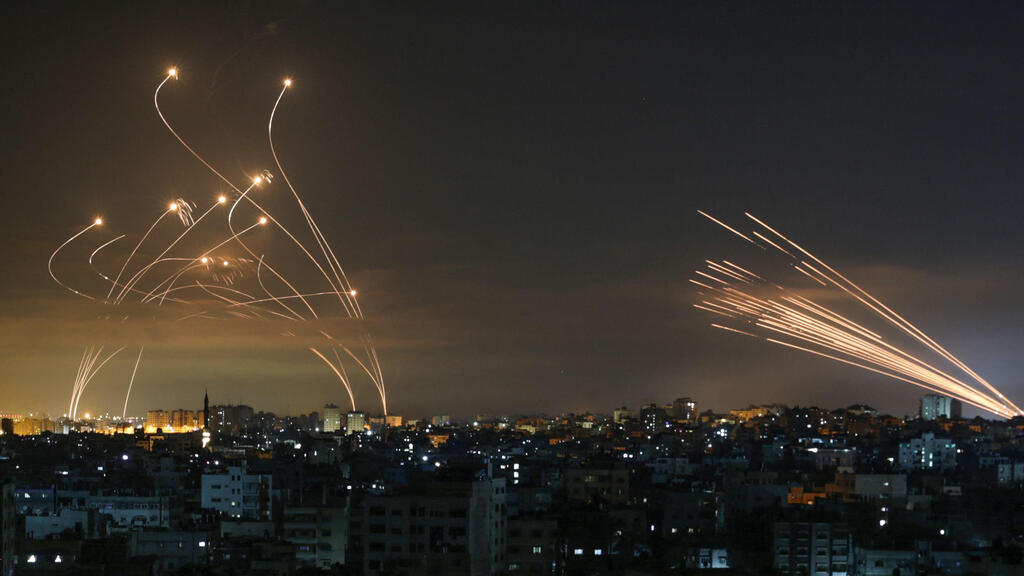

Iron Dome activates in southern Israel as rockets are fired from northern Gaza overnight Thursday
(Photo: AFP)
The first is Israel's general reluctance in being thrown into another campaign in Gaza, regardless of how short it would be.
Renewed fighting could throw Israel's daily life and economy completely out of kilter, deplete the Air Force's precious stocks of precision weaponry and lead to harsh international criticism, possibly even from Washington.
The second reason is that U.S. President Joe Biden's administration is working very hard now to calm tensions in the Middle East so that it can focus on Russia and China, with American officials seeing Israel as a key component to this.
The third - and main - reason is that Israel wants to give Egyptian mediation efforts a chance.
The head of Egyptian Intelligence Abbas Kamel and his associates are trying intensively to reach a long-term settlement in Gaza, which will include a stable ceasefire, rehabilitate the enclave and improve the lives of its residents.
In return, Israel wants to halt the further militarization of terror groups in Gaza, as well as a reasonable prisoner exchange to get back the Israelis and IDF soldiers' bodies held in the enclave.
Egypt asked Israel to show restraint and Israel obliged, even solely because the new government is not even three days old and the security cabinet has yet to meet on a policy fGaza.
Transitional period or not, Israel must remember that after the 2014 Gaza war, the Egyptians failed to reach a ceasefire agreement with the various factions in Hamas, despite the negotiations going far beyond what was militarily and materially justified.
This is what allowed the once-decimated terror group to inflict unnecessary losses and material damage on Israel. And with the latest war behind us, Israel must ensure that this does not happen again.
7 View gallery
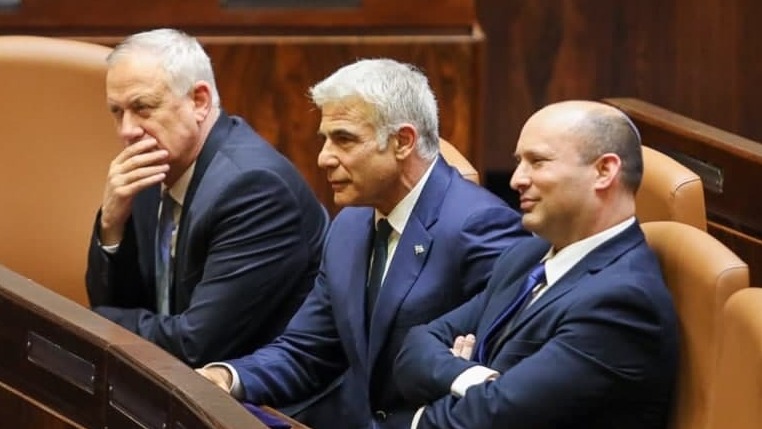

L-R: Defense Minister Benny Gantz, Foreign Minister Yair Lapid and Prime Minister Naftali Bennett
(Photo: Knesset Channel)
It will not take long to see whether the new government is making the mistakes as its predecessors, or if it is able to smash this Hamas equation.
The next test will come in the coming days.
If Israel continues to stop Qatari aid money from going directly to Hamas and insists on linking the hostages to the rehabilitation of Gaza and the end of military expansion by the terror groups, Hamas and PIJ could force their demands through renewed rocket fire and balloon bombs.
In such a scenario, the government will have an opportunity to prove that the rules have changed on Gaza, whether or not it escalates to more fighting and more global criticism.


